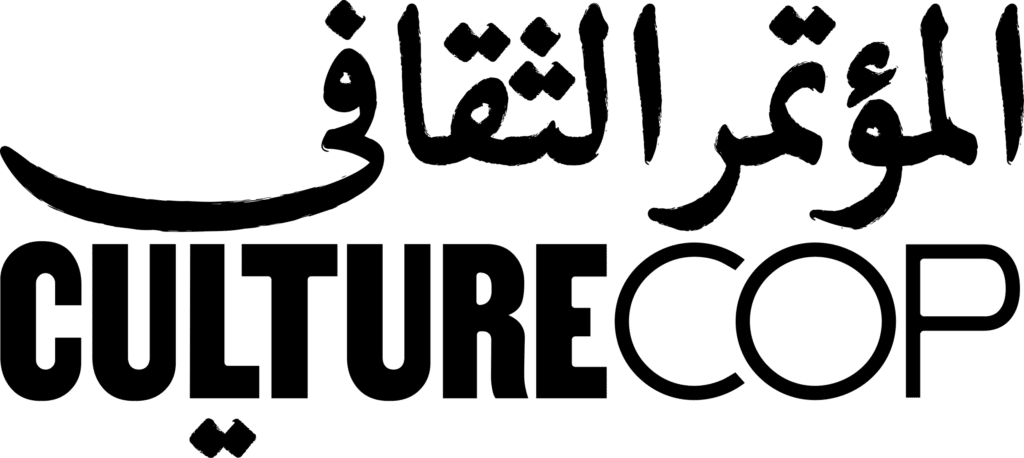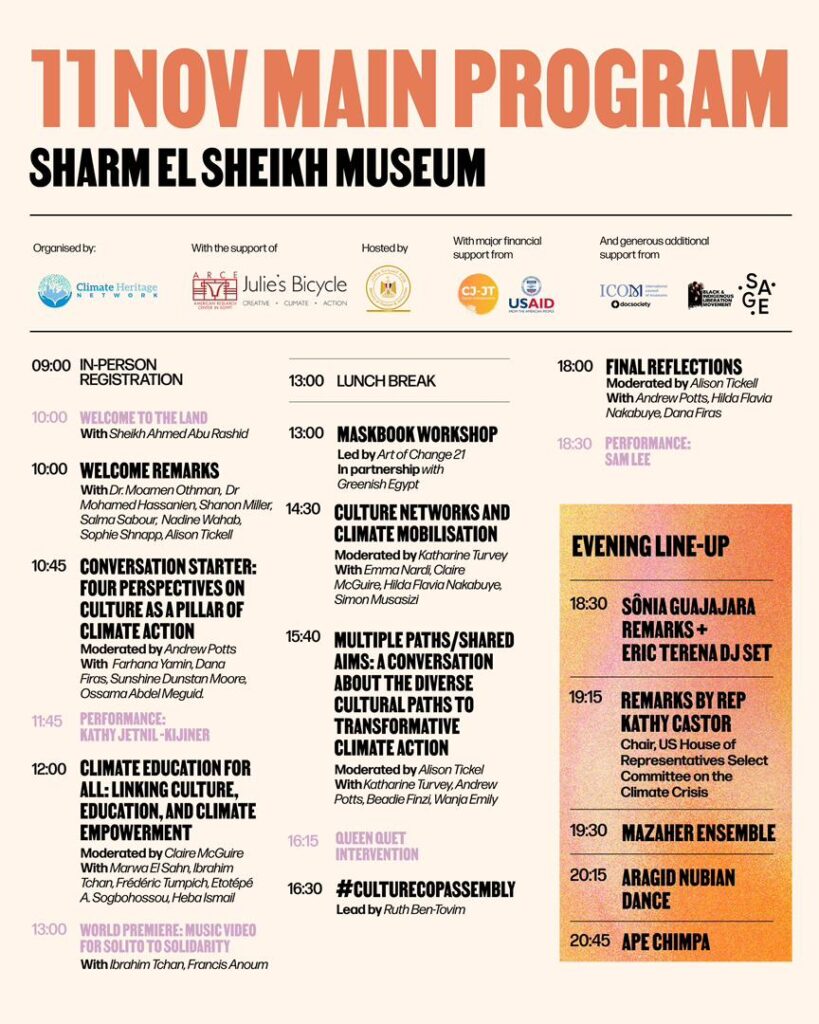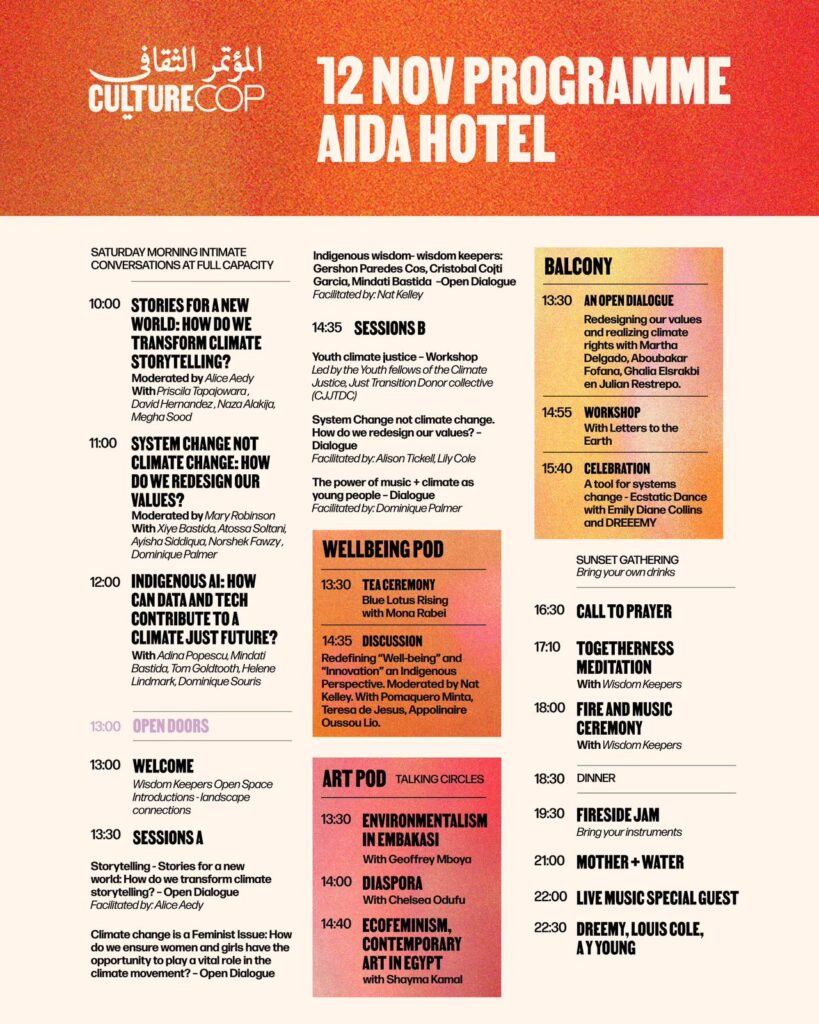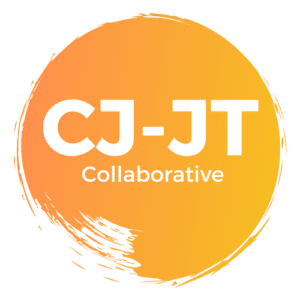CULTURECOP
CultureCOP is an emergent initiative using the power of arts, culture, heritage and creative practices to centre climate justice in the work of the annual UN climate summits called COPs (Conference of the Parties) and the UN Sustainable Development Goals (SDGs).
Climate lawyer, activist and campaigner Farhana Yamin is Culture COP’s creative director bringing together the expertise, skills and voices of existing and new partners who seek to understand and engage with the Annual UN COP cycles.

Urgent systemic shifts are needed to defend nature and implement global agreements like the 2015 Paris Agreement and the SDGs to achieve global justice on the basis of agreed science leaving no-one behind. Their implementation has been too slow and incremental.
The intersecting climate, social and ecological crises we face call on us to use more creative and participatory tools for change, enabling us to reflect, imagine and co-create a more interconnected and just future for all. We need courage as well as new spaces to reimagine systems not based on extractivism, colonisation, consumerism and a single story of progress.
Throughout time arts and culture have been at the heart of our worlds, connecting us and giving expression and voice to our experiences. They have the power to transform, heal and activate us. They help us look at the past, acknowledge the present and use our imaginations to vision and rehearse the future.
CULTURECOP 2023
2nd CultureCOP International Virtual Assembly, Date TBC
In preparation for COP 28 taking place in the United Arab Emirates from 30th November to 12th December, this second online CultureCOP Assembly will take place in the summer
THE WORK OF CULTURECOP
- Advocate for art, culture, and heritage perspectives that centre climate justice to be mainstreamed into climate change policymaking
- Educate and engage COP delegates on the loss of culture and heritage globally especially in front line communities facing the devastating impacts of climate change
- Convene international cultural practitioners to share practice and information about the routes emerging for the sector to influence and play a more active part in climate change policymaking at COPs and why this is important to the COP process
- Shine a light on how aspects of the global arts, culture and heritage industries are complicit in causing harm, and the radical systemic changes needed within the sector in order to be part of creating a more climate just future.
- Bring creative participatory processes to COP proceedings that catalyse dialogue, exchange, emotional depth, connection and transformation
- Programme and commission artistic inputs and creative interventions at the COP summits that centre the lived experience of those marginalised or on the frontlines such as indigenous peoples and those in the Global South
- Support Movement Building at the COP Summits through cultural and heritage led exchange events and visits
The 2022 Assemblies asked participants to:
Imagine if there was a seismic shift in which arts and cultural practices across the whole world centred on climate and ecological justice, safety and joy


CULTURECOP 2022
CultureCOP International Virtual Assembly, October 31st 2022
The first CultureCOP Assembly was virtual and attracted 700+ global registrants with over 300 artists and cultural organisers attending the online session to discuss and reimagine the role of culture in meeting the climate and ecological emergency. Through a process of speaker inputs, small group deliberation and plenary feedback.
For a full write up of all responses to the virtual and in person Assembly
CultureCOP COP27
Sharm El Sheikh, Egypt
Initially the main CultureCOP programme was to be an in person, three day ‘festival in the desert’ event hosted in Dahab. Deliberately set a little distance away from the intensity of the conference, which would be more accessible by a broad range of participants. But like many other civil society gatherings at COP27, there were significant obstacles to delivering this plan including restrictions on movement and accommodation cancellations by the authorities. However the steering group, partners and creative collective iterated and within less than two weeks notice had reimagined much of the programming into the heart of the conference at Sharm El-Sheikh through representation on panels in the Blue Zone, at gatherings in Goals House, Hope House and the New York Times Hub as well as delivering a new programme of curated events. This was supported by the tireless efforts of our partner Doc Society, our local Egyptian partners as well as the support of other civil society allies at the conference, especially Climate Heritage Network and Julie’s Bicycle.
Friday 11th, #ArtCultureHeritageCOP27 at Sharm El Sheikh Museum of Antiquities
Saturday 12th, Connecting and strengthening movement building at
Aida Hotel Sharm El Sheikh
Sunday 13th, Cultural Exchange and Connection on the Sinai Trail
Additional events at COP27
Rather than being concentrated into a single venue, different members of the CultureCOP collective represented on panels in the Blue Zone, at gatherings at Goals House, Hope House and at the New York Times Hub – engaging a range of stakeholders in multiple zones over the week. Examples included: the CultureCOP nightcap at Goals House in partnership with the Blue Marine Foundation, celebrating the power of storytelling and creativity in inspiring action towards a fairer, joyful future where no one is left behind. The Doc Society gathering of cultural workers from broadcast TV, film + radio hosted at the New York Times Hub. Farhana Yamin speaking on ‘Losing the Irreplaceable: Loss & Damage, Culture & Heritage’ at the Resilience Hub in the Blue Zone. Emily Wanja presenting at the UNFCCC organised event: ‘Implementing Climate Action in Entertainment & Culture – Inclusive and Equitable Pathways Towards a More Sustainable Sector’ in the Blue Zone
STEERING GROUP
CultureCOP in Sharm El Sheikh was designed as a decentralised collective with a steering committee comprised of:
Farhana Yamin – Creative Director + Co-Coordinator
Sophie Shnapp – Artistic Director + Co-Coordinator
Leo Cerda – Black Indigenous Liberation Movement BILM & If Not Us Then Who
Ashraf Kenawy – House of Arts and Culture DAR
Faisal Kiwewa – Bayimba
Nadine Wahab – Eco Dahab
Naza Alakija – Sage Foundation
Beadie Finzi – Doc Society
FUNDERS AND PARTNERS
The activities of CultureCOP at COP27 were supported financially by a bold group of funders including:
Climate Justice & Just Transition Donor Collaborative (CJ-JT)
Doc Society
Porticus Foundation
CECG
USAID (via Climate Heritage Network)
Sage Foundation
ClimateWorks
Synchronicity Earth
Black Indigenous Liberation Movement
Therme
Alongside the steering committee, the programming was co-created with the participation of 60+ multi-disciplinary practitioners and community organisers, contributing to the art, music, film, education hubs. The on the ground producing team was Nadine Wahab (ECO Dahab), Simon O’Kelly, Jack McCutcheon (UMA Group) + Beadie Finzi (Doc Society) with support from Sophie Schnapp.
CONTRIBUTORS
We wish to share heartfelt gratitude to all our friends, colleagues and partners who we worked with and alongside and who made our events and activities so special, our deepest thanks goes to:
Align
Climate Emergency Collaboration Group
Climate Justice Resilience Fund
Climate Strategies
Climate Vulnerable Forum
Climate Works Foundation
Doc Society
Green Africa Youth Organization
Greenhouse Agency
High Level Champions Team
iFOREST
IKEA Foundation
Impatience Ltd
Just Transition Centre
Kite Insights
Oak Foundation
Open Society Foundation
Porticus
Robert Bosch Foundation
Sage Foundation
SAJIDA
Therme
UMI Fund
Youth Advisory Group, to UN SG
Egypt Ministry of Culture
Egypt Ministry of Tourism and Antiquities
Aida Hotel Sharm El-Sheikh
Bayimba Foundation
Black Indigenous Liberation Movement
CCOP Steering Group
Climate Heritage Network
CultureCOP
Earthrise
Goals House
House of DAR
Julie’s Bicycle
Letters to the Earth
Lily Cole
Minga Indígena
Nadine Wahab, EcoDahab
Nest Collective
Project Everyone
Ruth Ben-Tovim
Sacred Headwaters Project
Sharm Museum of Antiquities
Sierra Quitiquit, Hope House
Sinai Trail
Still/Moving
UMA Entertainment Group
Wisdom Keepers
